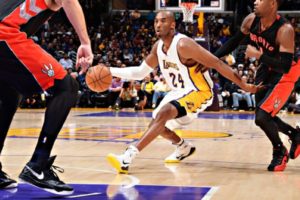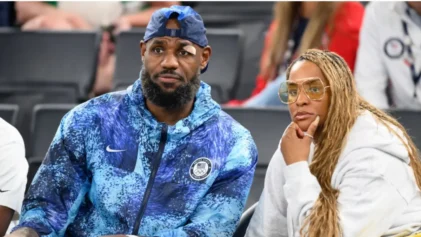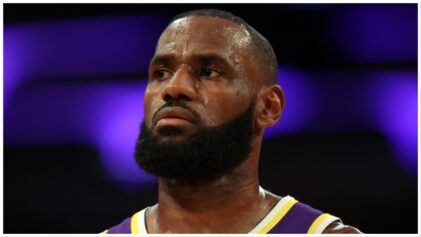Kobe Bryant is not a funny guy. He’s almost machine-like and seemingly single-minded, focused not on making friends, which is one of the reasons he’s simultaneously loved and hated.
But Bryant offered a good one Sunday night, after becoming the first player in NBA history to score 30,000 career points with 6,000 assists.
“It means I pass more than people say,” Bryant quipped.
It was funny, almost self-deprecating and insightful. It also was accurate.
Bryant is the best player of his generation. No one else who was at his prime since he entered the NBA 19 years ago has been more prolific, more spectacular, more successful, more dominant.
Not Shaquille O’Neal, who had a strong run, but fizzled into a bit player on three teams to end his career. Not Tim Duncan, who continues to be productive, has five rings, but was an integral but secondary force behind Tony Parker and Manu Ginobili in recent years with San Antonio. Not LeBron James, who got only two championship rings in Miami after declaring a quest for “not five, not six, not. . .” Not Dirk Nowitzki, who is a future Hall of Famer, has one title with Dallas.
That leaves Bryant at the pinnacle. Young guns Kevin Durant and Chris Paul, et al., have not done nearly enough to be considered in the same plateau.
“He’s just an amazing basketball player,” Los Angeles Lakers coach Byron Scott said. “That’s the bottom line. He’s had an unbelievable career. He’s still going pretty strong.”
Bryant is also the most polarizing player of his era. Black fans that do not like Bryant dislike him more for who they perceive him to be than his basketball prowess. Black fans judge Bryant by personal standards before they entertain the basketball part.
One is arrogance. Bryant hardly has said anything as self-promoting as Michael Jordan saying in the video “Come Fly With Me” that opponents are “at my mercy” when he is hot. Pretty arrogant. And yet Jordan was universally revered, while Bryant’s body language or facial expressions rub people differently, makes them cringe.
Two is the man code violation. Bryant broke it in 2003, when, as he was being investigated by police during a rape allegation, he amazingly said he should do as Shaquille O’Neal had done and “pay off” the woman bringing charges. Men in general, Black men in particular, took Bryant’s breaking of the code as an unforgivable breach.
Fifteen years later, the barbershop argument about Bryant still starts with that for his detractors. O’Neal seemingly has gotten beyond it; he and Bryant laughed and embraced last week at a Lakers game. It seemed natural. But Bryant haters hold on to their animus with a vice grip, calling him a “code-breaker,” a “rat” and any other insult they think of that denotes traitor.
He’s polarizing in that there is no in-between with him. He has led the league in All-star votes and worldwide jersey sales, and yet he elicits the strongest negative reactions. When he set the record for the most misses in NBA history two weeks ago, the haters cheered. Loudly.
At 36, Bryant, who had 31 points, 11 rebounds and 12 assists in the record-setting game against Toronto Sunday, and coming off two major injuries, leads the league in scoring. His detractors cannot deny his skill set that has been eclipsed only by Jordan. But he’s called a “ball hog” because, frankly, he hogs the ball. He hogs it because he believes the chances of scoring are better with him launching shots than anyone else.
But the 6,000 assists in his career means no one who was as dynamic a scorer as he has passed the ball as much. Think about that. Statistics sometimes can be misleading. Not this one. This one says that Bryant hogged the ball, but shared it more than it appeared.
“One is more in your control than the other,” Bryant said about scoring and passing. “I prefer things to be under my control. But yeah, the assists [milestone] is actually more enjoyable because it means guys are playing with confidence and they’re more involved. They emotionally feel better. They get more excited, more into the game. It makes playing more enjoyable.”
Sharing the ball, so the ubiquitous argument goes, translates into making teammates better. That’s what the Bryant admirers would say. And they’d be right. Further, making teammates better is not just about setting them up with the ball. It’s performing with complete effort every night. It’s practicing as hard as you play the games. It’s fighting for every inch. It’s hating to lose more than you love to win.
That’s what has driven Bryant’s brilliant career. So, not only has he passed the ball, but he’s made teammates better through setting an example of professionalism and commitment few players have.
James, for all his talent and size and showmanship, does not have that gene that Bryant and Jordan had—slit a throat to win. Slit five throats to win. They did not care if teammates liked them (Jordan punched Steve Kerr in the face in practice and cursed teammates frequently). Bryant has not been the warmest guy in the Laker locker room over his career. But you can bet his coaches appreciate him.
Father Time catches up to everyone, and he will get a hold of Bryant and slow him, too. So far, though, Bryant looks remarkably fresh. “There’s a lot left in that tank. It’s obvious,” Scott said. “His accomplishments are just fantastic. To watch him continue to compete the way that he does at this level is remarkable.”
Which is an accurate way to describe his career. . . remarkable. And polarizing.



